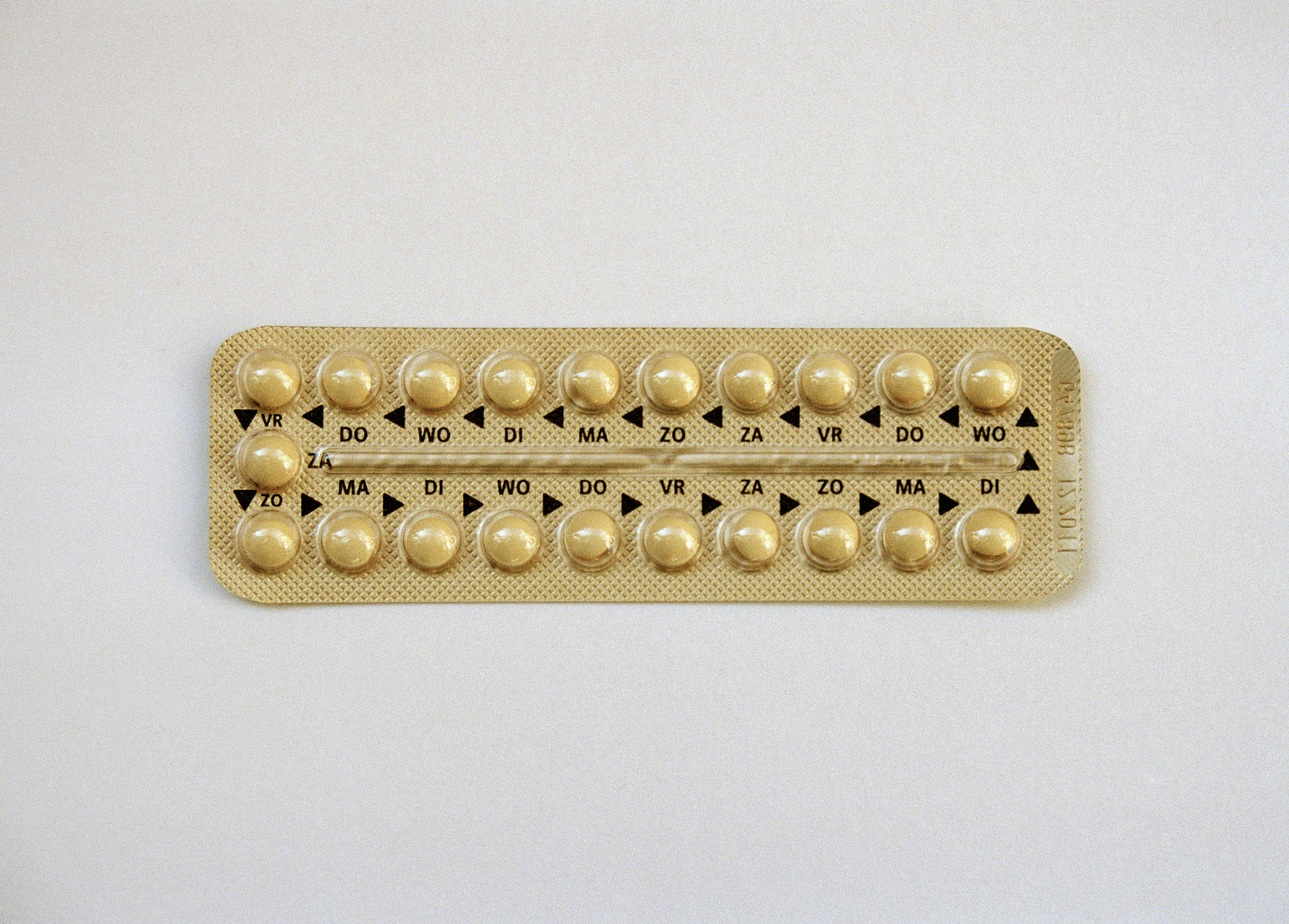You asked, we answered: why is the male contraceptive pill taking so long to develop?
The concept was first proposed in 1957 - so what's delaying progress?

The concept was first proposed in 1957 - so what's delaying progress?
It's no news that a male contraceptive pill is being developed. It's been making headlines for sixty years since the concept was first proposed because yep, fun fact: the idea for the male contraceptive pill was actually first thought up back in 1957.
Sadly, there's been little to no development as of yet, despite campaigns and calls from around the globe to make the contraception playing field more equal. At current, the only forms of contraception are largely those that women have to take or have inserted, like the pill, the implant, IUD's like the coil, and IUS's (read up on the different types of contraceptives, here).
Of course, there are also condoms, but that's pretty much the only one men have to use, not women.
While developing a male contraceptive pill is a whole different challenge to what scientists faced when creating the first women's pill in 1961 - women ovulate monthly whereas men are producing millions of sperm every day - it's 2021 and about time that the onus wasn't just on women.
Question, then: why exactly is the male contraceptive pill taking so long and what's the delay? The concept was proposed around the same time as the female one, back in the 50's, and yet, there still seems to be new headway. That hasn't affected public interest, either: if anything, people are growing more curious, with new data showing an increase in searches for ‘male contraceptive’ by 50% this last year.
Naturally, we're all starting to wonder what it is, how it works and when it will be available - but do doctors know the answer to these questions yet? We've spoken to Sameer Sanghvi, clinical technology lead at LloydsPharmacy Online Doctor, to get the inside scoop.
Male contraceptive pill: what's the latest?
What is the male contraceptive?
In short, a form of birth control that men can take, rather than women. There isn't one type of male pill at current - there are several different versions in development, shares Sanghvi.
Celebrity news, beauty, fashion advice, and fascinating features, delivered straight to your inbox!
"An early version contained only synthetic progesterone and required the use of an implant that releases testosterone to counter any unwanted effects," he shares.
"More recently, a pill called 11-beta-MNDTC has been through early, successful trials in the US."
How does the male contraceptive work?
As above, the female pill works because women ovulate once a month - but how are scientists planning on making a male contraceptive work when men produce millions of sperm - that's about 1,500 a second, FYI - a day?
"It would work by blocking sperm production," he explains. "In a small trial, this caused the hormones required for sperm production to drop, and some men experienced side effects such as acne, exhaustion and headaches. Some men also reported low sex drive and erection difficulties."
No different to the side effects women face on the pill, then...

Why is it taking so long to develop?
In short, because for the pill to work, it would have to achieve a number of things: slow or stop the creation of sperm, stop the sperm from leaving the body, and further, prevent the sperm from reaching the destination or prevent the sperm from fertilising the egg. "All of which are no easy feat," shares Sanghvi.
The pill has passed initial human safety tests, but plenty of people have argued that the present delay is down to researchers avoiding inconveniencing men with potential side effects, shares the doctor.
"A lack of interest can lead to a lack of investment, which makes developing treatments like this even harder."
Why has it caused controversy?
Good question. "The female pill in the UK was launched 60 years ago, but the male pill will likely still be under development for several more years," shares Sanghvi.
Men have protested about the side effects seen during the trial of the pill. Sadly, they're similar to the side effects most women have been dealing with for over 60 years already. It's time the burden was shared, in our opinion.

When will it be readily available?
As Sanghvi points out, it's a slow process, not helped by the apparent lack of interest - and funding - in its development.
"It’s taken many years to develop and there’s still work to do before the pill is readily available," he shares. "There is research going into other forms of male contraception, but a contraceptive pill for men is still likely to be many years away from reaching the market."
Many scientists also believe that even if a male contraceptive pill was developed, men wouldn't take it - which is why there's been so little investment so far. Nobody wants to sink money into a product that won't sell.
As Allan Pacey, professor of Andrology at the University of Sheffield, said to the BBC: "The development of a male birth control pill, or injection, has had a chequered history without much success so far and so it is good to see that new preparations are being tested."
"The key will be if there is enough pharmaceutical company interest to bring this product to market if their trials are successful."
"Unfortunately, so far, there has been very little pharmaceutical company interest in bringing a male contraceptive pill to the market, for reasons that I don't fully understand but I suspect are more down to business than science."

Ally is Marie Claire UK's Senior Health and Sustainability Editor, a well-regarded wellness expert, nine-time marathoner, and Boston Qualifying runner.
Utilising her impressive skillset and exceptional quality of writing, she pens investigative, review and first-person pieces that consistently demonstrate flair and originality.
As well as writing, Ally manages a team of freelancers, oversees all commissioning and strategy for her pillars, and spearheads the brand's annual Women in Sport covers, interviewing and shooting the likes of Mary Earps, Millie Bright, and Ilona Maher. Shortlisted for three BSMEs and winning one in 2022, Ally lives and breathes her verticals: her eye for a story and connections within the wellness sphere are unrivalled. Follow Ally on Instagram for more.
